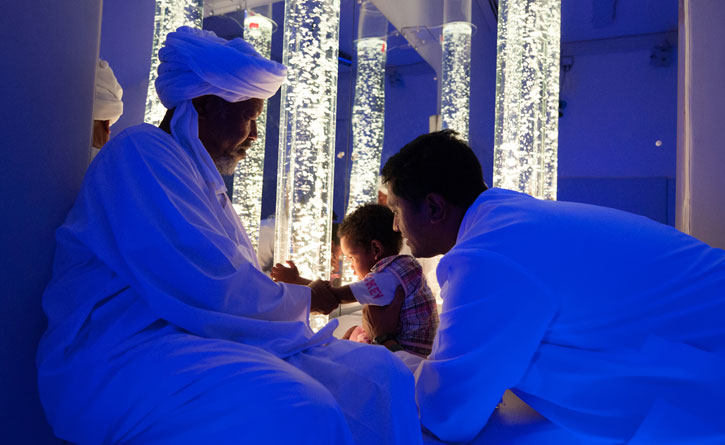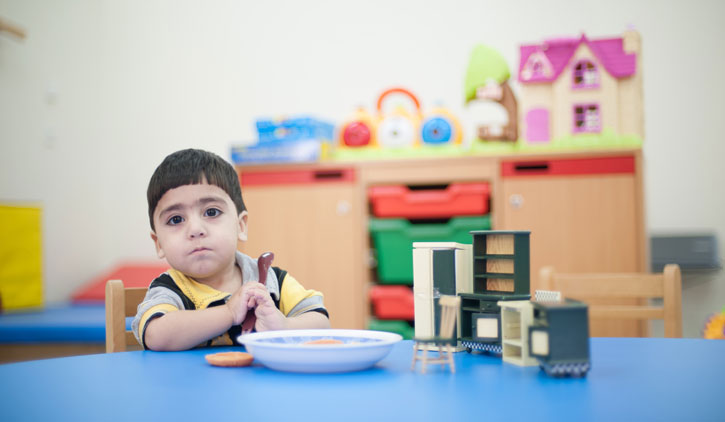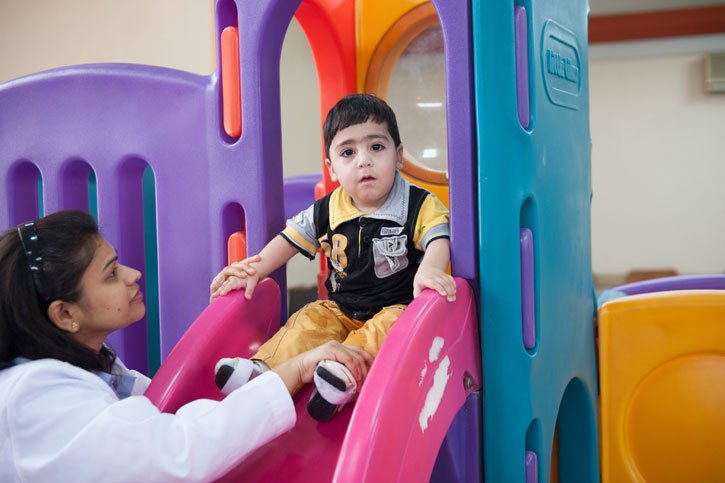The early years of a child’s life are very important. During the infant and toddler years, children grow and develop at different rates. Some children and families face special challenges and need extra help. The Early Intervention Program involves the provision of medical, therapeutic, psychological and educational services for children from birth up to the age of three, and it has proven to make a difference in these children’s lives for the better.
Officially opened to patients in January 2012, the EI Program has already shown excellence in pediatric healthcare by remaining dedicated to providing high quality family-centered, integrated and coordinated care to their patients. ‘Children First’ were invited to visit the clinic based in the Child Development Center to not only take in the environment, but to also speak to a mother whose child is enlisted in the program.
Upon arriving at the clinic, it is clear to see the child-friendly nature of the service. The sheer size of the play and waiting area clearly reflects the child-friendly nature of the program. The therapy rooms are divided between the EI Program and the Autism Program. Along with three therapy rooms there is also a very hi-tech sensory room which aims to provide the children with sensory stimulation and feedback needed for their normal development. It is a soft padded white room with a calming effect. Visually changing stimuli through colored tubes and fiber optic strings can be controlled by the children through switches in the room. The auditory and visual programs which are individualized for each child are adjusted electronically on the computer.

Above: An Early Intervention Program Therapist with a patient and father in the Sensory Room
‘Children First’ were introduced to two year old Yasser and his mother. Yasser is diagnosed with myopathy, which is a disease resulting in muscular weakness. This left Yasser unable to use his lower limbs and has also impacted his cognitive and speech development. Yasser joined the program in April 2013 and has just finished three months of intensive rehabilitation; the results are outstanding.

Above: Yasser
Prior to the EI Program, Yasser had limited mobility and relied on his mother to pick him up. Most children his age are walking independently. Just three months on, Yasser is now more active and is able to crawl, as well as walk with support – a concept which seemed unrealistic prior to treatment with the program. ‘Children First’ were lucky enough to witness Yasser walking and proudly showing off his new skill.
The therapists and nurses are dedicated to practicing family-centered care and believe it is integral to the improvement of conditions such as myopathy. Yasser’s mother agrees, ‘I have been more motivated to practice the exercises we learn from the program, not only is it a learning environment for Yasser but also for myself. I now have a thorough understanding of what the benefits of the exercises are that the therapists teach, which allows me to then practice these activities with Yasser at home.’

Above: Yasser enjoying his play session with his Physiotherapist
Yasser’s mother also commented, ‘The EI team is very accessible and are always on hand for support and advice when we need it’. This is thanks to their very own assigned case manager who liaises with Yasser and his family at every step of the process. Their case manager will bring forward any issues Yasser may have to the EI Team at weekly meetings for the whole team to discuss options and solutions that can be incorporated into his treatment package.
Reassessments are done every three months and individual goals are modified accordingly. The healthcare professionals who work closely with Yasser believe it will be a constant learning process for him. With realistic goals and the support of those around him, Yasser has the chance of improving his current milestones, and experiencing future ones too.
